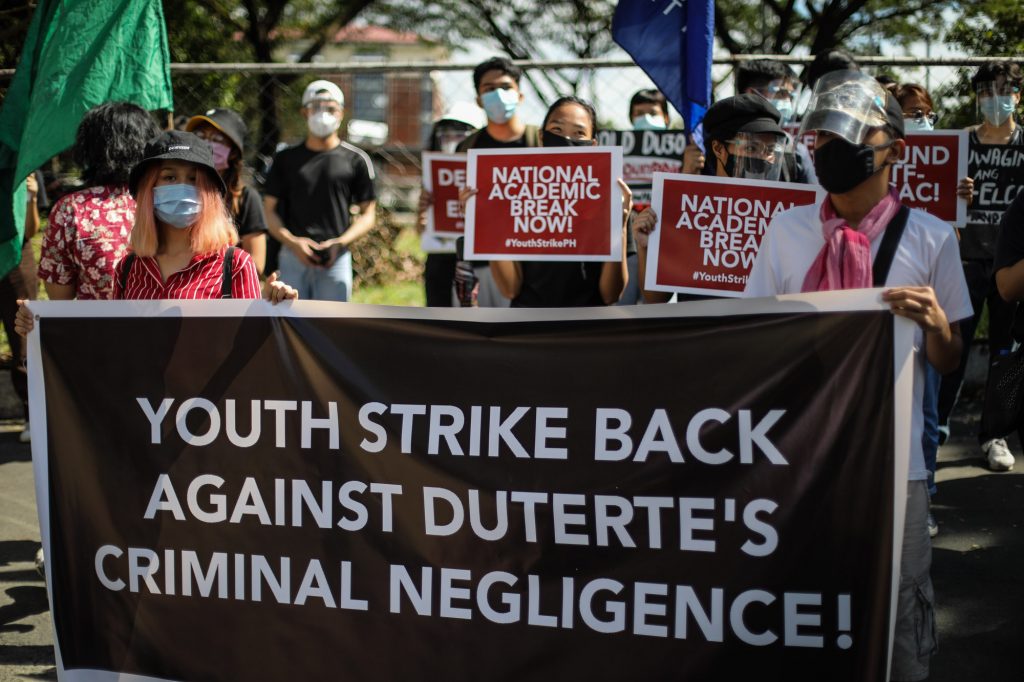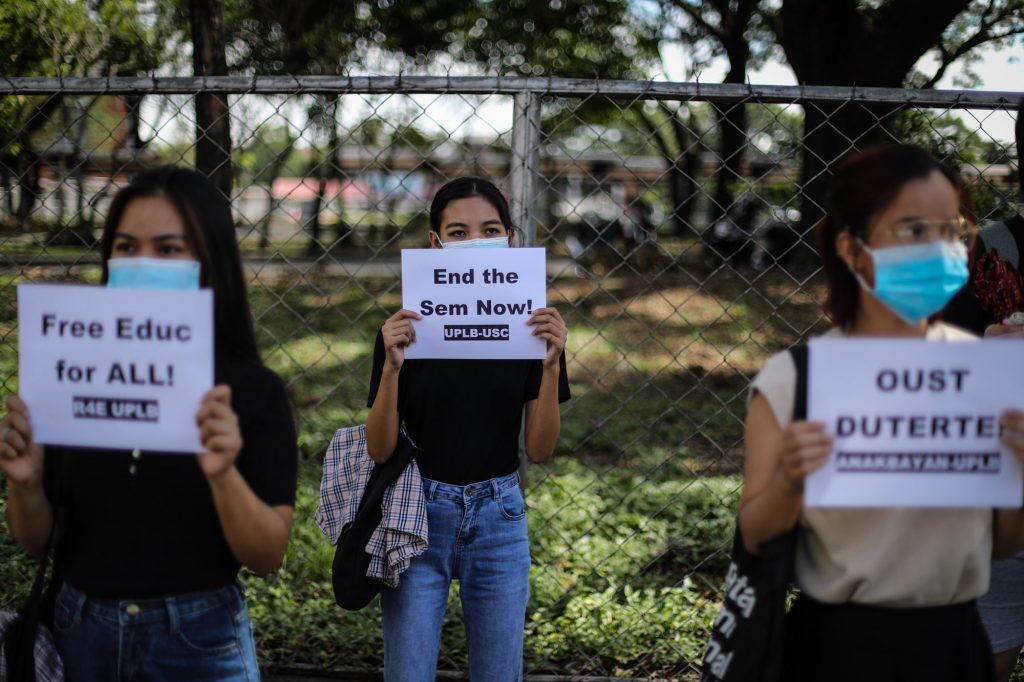
A Jesuit university in the Philippines called for “unity and solidarity” in the community as its students initiated a nationwide “academic strike” against the government.
“We Filipinos are now being called to act and unite for our common good, and this starts with introspection and dialogue,” said the Jesuit-run Ateneo de Manila University in a statement released on November 25.
The university noted that the past weeks “have exposed our collective shortcomings as a nation” and even as it gave assurance that the school is going “the right direction” through dialogue with the community.
In an earlier statement, the university said it was “aware of a protest assembly” outside its campus that day.
“Please be aware that this protest activity and the one held last 17 November are not in any way sanctioned by the university,” it said in a November 20 statement.
Several members of the Ateneo community took to social media to criticize the university’s statement.
“What even was the point of releasing a statement like this? Disappointment doesn’t even cut it,” read a social media post.
“I love you, Ateneo. But I don’t see the need to release a statement like this,” another wrote.
On November 17, Ateneo students and youth groups from other schools in Manila staged a demonstration to call for an “academic strike” against alleged government “negligence” and “inaction” during recent natural calamities.
The students announced that they would stop submitting school requirements starting November 18 until the national government heeds their demand for proper calamity aid and pandemic response to those most affected of the calamities.
The protest action caught the attention of the government with government spokesperson Harry Roque warning students that they will fail their classes for calling for an academic strike.
On November 23, at least 500 Ateneo students signed a manifesto urging other Filipino youth to stand with them in solidarity.
The again called for a nationwide academic strike and demanded accountability from the government for its “criminal negligence” in the recent disasters.
The signatories comprise nearly six percent of Ateneo’s undergraduate student population of at least 8,600.

“We do not strike as a way to exempt ourselves from the academic life, for it is precisely to fight to return its value. While this is a movement for the students, it is our hope that other communities heed our call,” read the manifesto.
“As we fight for our right to an academic life, we invite all those who want to see it flourish again to join us. We invite our fellow youth nationwide. Together, in our collective action, we strike not just for our education, but a country we can be proud of,” it added.
The protests came after a series of three typhoons battered the country, leaving several towns and cities in the northern Philippines flooded.
“The disastrous effects of the typhoon resulted from the government’s lack of urgency in handling the situations, limited calamity and research funds, and little to no media coverage. Had the government responded quickly, we could have prevented such a number of casualties,” read the students’ manifesto.
In a statement, Jesuit Father Roberto Yap, president of Ateneo de Manila University, said the university’s “primary responsibility” is “forming persons for and with others.”
“We strive to foster a culture of ‘listening-to-the-other’ and the capacity for collaborative action,” he said, adding that in the Ateneo community “there are many voices and many modes of expression.”
He then called everyone “to grow in the habit of respecting the views of others and to the desire to be bridge-builders who foster productive collaboration.”
“The time calls us to solidarity. Not of our own light, but that of Christ,” said Father Yap.
Source: Licas Philippines
0 Comments